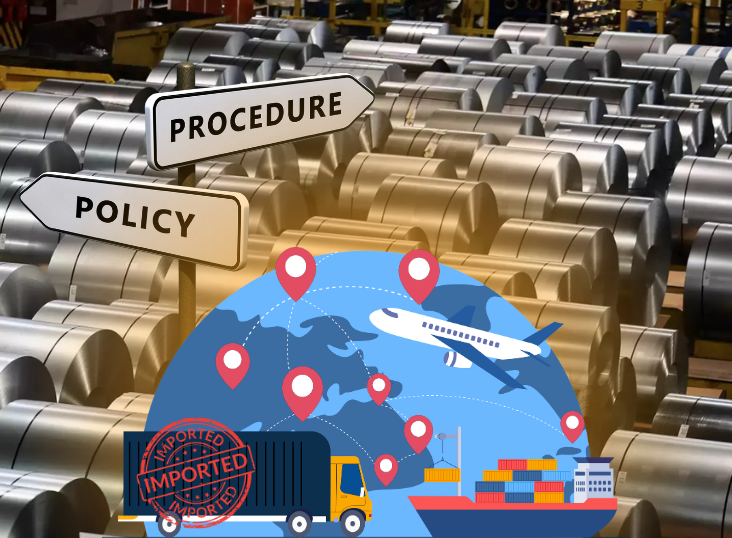The Government of India is taking robust steps to strengthen the domestic steel industry while addressing the challenges posed by increasing imports. Recent data reveals that India imported 5.77 million tonnes of finished steel between April and October of the financial year 2024–25, with China and South Korea emerging as the largest contributors.
In a written reply to the Lok Sabha, Union Minister for Steel and Heavy Industries, Shri H.D. Kumaraswamy, outlined key initiatives aimed at achieving the target of 300 million tonnes (MT) of crude steel capacity and bolstering domestic production.

Key Policy Measures to Enhance Domestic Production
- Domestically Manufactured Iron & Steel Products (DMI&SP) Policy: The government continues to promote the use of ‘Made in India’ steel for public procurement, enhancing local industry opportunities.
- Production Linked Incentive (PLI) Scheme for Specialty Steel: The scheme aims to attract investments of ₹29,500 crores and create an additional 25 MT of specialty steel capacity. This initiative reduces import dependency and strengthens India’s position in high-value steel production.
- Customs Duty Relief: The Union Budget 2024–25 reduced the Basic Customs Duty (BCD) on key raw materials like Ferro-Nickel and Molybdenum ores to zero. Exemptions for ferrous scrap and specific raw materials for CRGO steel have also been extended until March 2026, making raw materials more affordable.
- Steel Import Monitoring System (SIMS) 2.0: This revamped system enhances monitoring and oversight of imports, addressing concerns from domestic manufacturers about unfair trade practices.
Quality Control and Recycling Initiatives
To ensure high standards, the government has notified a Steel Quality Control Order mandating that only BIS-compliant steel is available for use. Additionally, the Steel Scrap Recycling Policy encourages the use of domestically sourced scrap, reducing environmental impact and import reliance.
Strategic Coordination and Global Collaboration
The government is also engaging with states, ministries, and international stakeholders to secure favorable terms for raw material availability, ensuring the competitiveness of Indian steelmakers.
Industry Outlook
These measures come at a time when India’s steel industry faces intensifying competition from imports, particularly from East Asian countries. By focusing on policy reforms, technological innovation, and capacity building, the government aims to establish India as a global leader in steel production while safeguarding the interests of domestic players.
India’s commitment to quality, sustainability, and innovation positions it well to meet future demand and contribute to the global steel industry.
